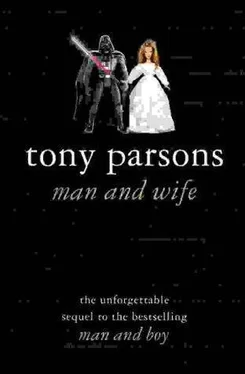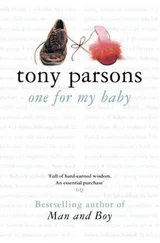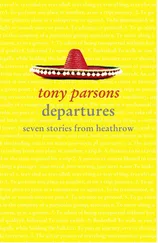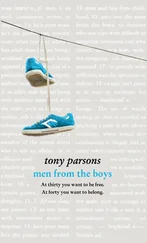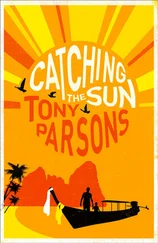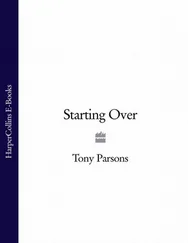I tried to brush past her but she grabbed my arm. ’I don’t want anyone else, okay? That’s it. You should know that already. I don’t want anyone else, Harry. Never have done. But you can wear out someone’s love, Harry, just like you can wear out anything else. So you either stop all this or…”
’Or what?’
’Or I don’t know what’s going to happen to us.’
She touched my face, and then saw the photograph I was holding. She took my hand and held it.
’Is that a picture of Pat?’
’What do you care?’
’Oh Harry.’ She released my hand. ’That’s not fair. If I don’t love your son in exactly the same way as you, that’s not some kind of betrayal.’
She had me there, of course.
Eamon cracked.
Perhaps it was Evelyn Blunt’s hatchet job. The journalist had pulled off the oldest party trick known to hacks – acting as Eamon’s best friend in the flesh, and then his public executioner in print. Under the headline No Laughing Matter, Blunt devoted
3,000 words to explaining why Eamon Fish was unimportant and the readers of his newspaper should take absolutely no interest in him. The photos were good, though – Eamon wild-eyed and windswept, his dark good looks almost a part of the Kerry landscape. And very, very moody.
Or perhaps it was the celebrity chef that made him crack. Eamon’s first chore on Wicked World was interviewing Wee Willie Hiscock, the loveable Geordie cook. All through the big English breakfast Hiscock blatantly plugged his new book, Right in Your Gobhole, Too, Bonnie Lad, the sequel to his bestseller, Right in Your Gobhole, Bonnie Lad. Eamon had always been averse to such blatant promotion, but where he had happily slapped it down on Fish on Friday, now he seemed unable to stem the flow of plugs.
Or perhaps it was the boy group that pushed him over the edge. Hermione Gates made no secret of the fact that she was a huge fan of Lads Unlimited, five young, handsome, hairless men who could carry a tune, but not very far, and who performed a series of dance steps that looked like gentle exercises for sufferers of arthritis.
The studio monitor clearly showed Hermione flashing her drawers in excitement during Lads Unlimited’s rendition of ’Our Funky Love Will Live Forever’. The monitor also clearly showed Eamon (favourite albums: Nevermind by Nirvana, Physical Graffiti by Led Zeppelin and Is This It? by the Strokes) looking at his watch.
But probably Eamon would still be presenting Wicked World to this very day if he hadn’t been asked to interview the winner of Six Pissed Students in a Flat.
The winner was Warren, a tanned, pierced, pumped-up plumber with a fashionably shaven head who was hoping that the success of Six Pissed Students in a Flat would allow him to put down his tool box and become something really useful, like a game-show host or a DJ in Ibiza.
Warren sat between Hermione and a dazed-looking Eamon. The retired plumber idly lifted up his pastel-blue vest, revealing his rippling six-pack and a diamond stud in his navel.
’For me the, like, turning point? Was in week six? When I discovered Darren had taken me milk out of the fridge. Without asking, innit?’
Hermione frowned at the memory. ’You were very angry, weren’t you, babes?’
Eamon’s head was hanging.
’Well, for me, asking before you use someone’s milk is what it’s all about.’
’Absolutely, babes. I’m, like – have a word with yourself, Darren, you muppet.’
Eamon had buried his face in his hands.
’Chloe and Zoë, right, they wanted to stop me confronting, Darren, innit? Who I could always relate to because we both have issues because of not being properly parented?’
Suddenly Eamon was on his feet, addressing camera two with its little red light shining above it. I felt a surge of pride. Even at moments of supreme stress, he never looked into the wrong camera.
’Turn it off,’ he said. ’Turn it off right now!’
’Babes?’ said Hermione Gates.
’You’re poisoning your mind with this rubbish. We all are. What’s wrong with us? We used to fill our screens with heroes. Now we want people we can look down on. People we can look down on.’ He looked with real sadness at Hermione and Warren. ’I want no part of it. ’ He tore off his microphone, pulled out the clear wax earplug that linked him to the gallery, threw them at the feet of the stunned floor manager. Tm going outside now. I may be a while.’
Then he was gone. In the gloaming of the studio wings, Barry Twist and I watched him go.
’You know he’ll never read an autocue in this town again, don’t you?’ said Barry.
’Sometimes you have to start again,’ I said. ’It’s painful and it’s messy. But sometimes you just have to make the break and start again.’
My mother was going into hospital in the morning.
I would pick her up first thing, and I knew already she would be wearing what she called her Sunday best, and then I would drive her to the hospital in the next town. And that’s where a surgeon would perform what they called a simple mastectomy.
One of her breasts, the one with the tumour, would be lost so that her life could be saved. That breast – one of the curves my father had fallen in love with when she was a young girl, and never stopped loving as they grew old together, the breast that had sustained me as a baby – would be gone, cut off to separate my mother from the tumour that wanted to kill her.
This thing that had given me life, that had made my father gasp with wonder and gratitude, would be cut off and – what?
– thrown away? Burned? Preserved for medical science?
I couldn’t think about these things, and none of the brochures
– not Talking with Your Children about Breast Cancer, or Living with Lymphoedema, or Exercises after Breast Surgery – gave any hint as to the fate of the amputated breast. They didn’t want you to think about it.
I sat in the living room of the old house, drinking cup after cup of strong sweet tea, feeling that my mother had been thrust into some kind of war. Everything suddenly seemed uncertain, unbalanced, in opposition. The breast and the tumour, love and sickness, life and death.
My mother was happy. She was happy because the old house was full of people, and this woman – one of seven children, mother of an only child who took years to arrive, widow of two years – seemed to feel that she was fulfilling her destiny again. The tea and biscuits, the sandwiches in the kitchen, the occasional beer produced for one of her brothers. It didn’t feel like the house was full because of cancer surgery. It felt more like Christmas.
The family is dying off now, that old family I knew as a child. All the aunts and uncles, the brothers of my parents, and the matches they made, beloved wives found in the same few streets, and then kept for a lifetime.
I knew these people better than I knew anyone. I knew their generosity, their resilience and their loyalty.
I was thankful that they fussed around my mother now ’Anything we can do, love, anything at all, let us know,’ I was told, time after time – but I wasn’t surprised.
My uncles and my aunts. Retired now, for the most part, or getting there. But I remembered them from the years when I was a child. Their aches and pains, the pills that now had to be taken, the unsettling visits to the doctor – they couldn’t cloud my memory of lean, hard men and their small, pretty wives, the men all factory workers and printers and shopkeepers at first, and later the shops being replaced by supermarkets, back when supermarkets were modern and new, and the women homemakers decades before the term was invented, homemakers the lot of them, even the ones who worked. And how they worked.
Читать дальше
Конец ознакомительного отрывка
Купить книгу
